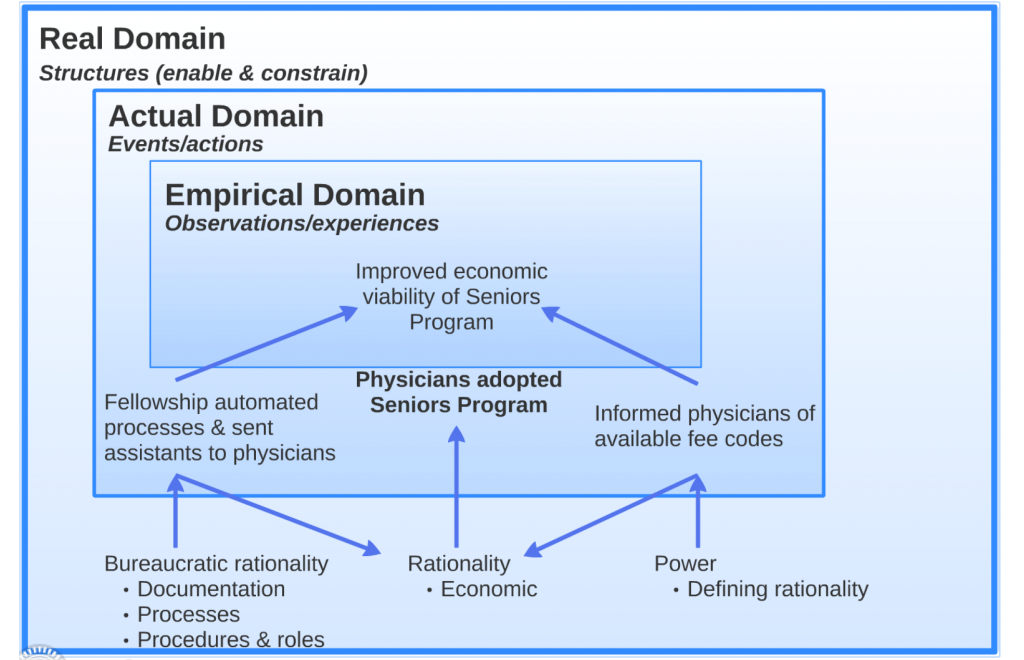Acting to overcome constraining structures
Brad C. Anderson
As discussed in Chapter III, even though structures enable and constrain activity, it is through our choices that we either reinforce or change structures. Individuals may, therefore, choose actions to overcome constraining structures.
For example, through economic rationality, physicians concluded that adopting the Seniors Program was financially unfeasible. The fellowship, in turn, developed electronic documentation to automate the doctors’ work in an effort to reduce costs–that is, they developed new bureaucratic rationality (documentation & processes) to change clinics’ economic rationality.
Additionally, they informed physicians of fee codes available to reward some of the work they would do if they adopted the Seniors Program. This is an act of defining rationality to, again, change the clinics’ economic rationality.
The BC Health Authority further provided personnel to assist clinics, thus using bureaucratic rationality (procedures & roles) to support the program’s spread.
The figure below diagrams the above description using a critical realist framework.

Key Takeaways
- Individuals may use different forms of rationality to overcome constraining structures.
A form of bureaucratic rationality. Bureaucracies use documents to classify and define objects, activities, and people (e.g. job descriptions, employment contracts)
A form of bureaucratic rationality. Bureaucracies use processes to standardize how individuals perform activities (e.g. the process of taking an order at a coffee shop)
A tactic of power where one party seeks to shape what others perceive as rational.
A form of bureaucratic rationality. Bureaucracies use procedures and roles to eliminate unpredictability by defining discrete roles within the organization responsible for different procedures (e.g. the Vice President of Marketing is responsible for overseeing all the company's marketing activities).

